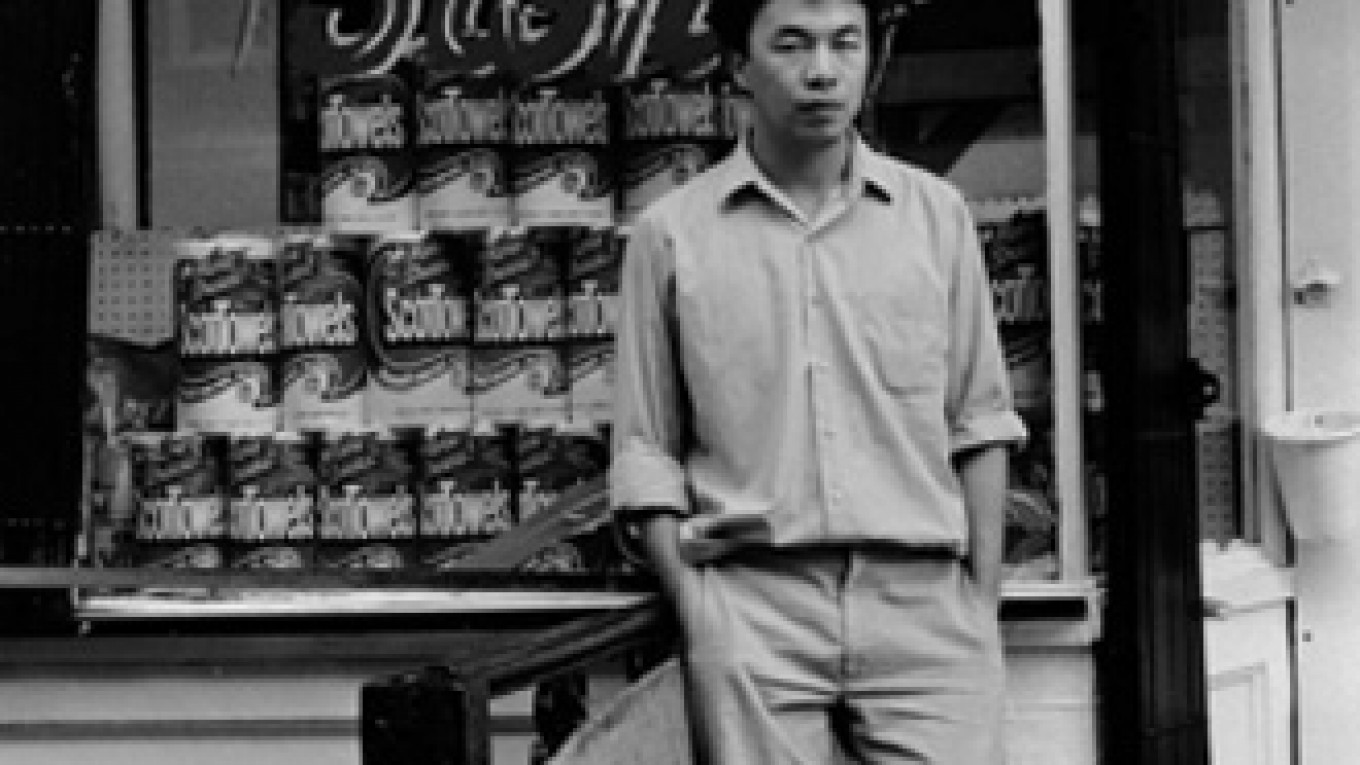An exhibit of Chinese artist and dissident Ai Weiwei currently on at the Multimedia Art Museum provides an intimate, and sometimes uncomfortably close, look at the artist's time in America through a series of black and whites, taken from a collection of more than 10,000 photographs.
In recent years, Ai has become famous, not only for his art, which includes work on the Beijing National Stadium for the 2008 Olympic Games, but also for his political activism. He is currently forbidden from leaving China because of his social and political activism, and in 2011, he was one of four runners-up for Time magazine's 100 Most Influential People list in 2011.
However, this exhibit transports viewers some 30 years back to a time when Ai was a "nobody" who took classes at the Parson's School of Design and the Art Students League of New York, his camera always with him at the ready.
"At that time, very few people could go outside of China," said Christophe Mao, the exhibit's curator and the director of Three Shadows Photography Art Centre in Beijing. Ai's exposure to the diversity of New York City uniquely shaped the artist's ideas and designs in a way that sets him apart from his Chinese contemporaries, Mao said.
His time with alternative thinkers, such as Allen Ginsberg and the Chinese writers Gu Cheng and Bei Dao offer hints at why Ai became the artist-
advocate he is today.
Olga Sviblova, the director of the Moscow House of Photography, cites "Profile of Duchamp, Sunflower Seeds (1983)" as an example of how the ties of Ai's early days in New York played out in his later art. The photograph is of a coat hanger, reformed in the profile of Duchamp's face and filled with seeds. Nearly 30 years later, in 2010, Ai installed a work entitled "Sunflower Seeds" at the Tate Modern Turbine Hall in London.
"It [the exhibit] is unbelievably sincere and striking," Sviblova said. "It [the series of photographs] is truly an amazing history … in which you can see how Ai moved from closed artist communities and gradually enters into New York City."
The exhibit displays snapshots of Ai's friends, not only in respectable portrait settings, but also lying in freshly wrinkled beds, or in barely there underwear.
Ai in no way preserves himself from the scrutiny of the camera. Nude self-portraits show an unabashed desire to view everything from a different perspective.
Ai took on the streets of New York with this same unbridled curiosity. Photographs of the AIDS rights protests from the late 1980s reveal a New York on the cusp of social change and a young artist's eagerness to take a
front-row seat in history.
However, Ai said the exhibit was not spurred on by feelings of nostalgia. He wrote in material accompanying the exhibit that he accepts that the New York neighborhoods he once knew have changed: Their former residents have died, or moved, and the society he called home for 10 years has disappeared.
"I feel that there is a certain strangeness in them, rather than a familiarity," he wrote of his photographs. "In the end, they are all part of a different reality than that of my own existence."
"New York: 1983-1993" runs at the Moscow House of Photography through May 27. 10 Ulitsa Ostozhenka. Metro Kropotkinskaya, .
A Message from The Moscow Times:
Dear readers,
We are facing unprecedented challenges. Russia's Prosecutor General's Office has designated The Moscow Times as an "undesirable" organization, criminalizing our work and putting our staff at risk of prosecution. This follows our earlier unjust labeling as a "foreign agent."
These actions are direct attempts to silence independent journalism in Russia. The authorities claim our work "discredits the decisions of the Russian leadership." We see things differently: we strive to provide accurate, unbiased reporting on Russia.
We, the journalists of The Moscow Times, refuse to be silenced. But to continue our work, we need your help.
Your support, no matter how small, makes a world of difference. If you can, please support us monthly starting from just $2. It's quick to set up, and every contribution makes a significant impact.
By supporting The Moscow Times, you're defending open, independent journalism in the face of repression. Thank you for standing with us.
Remind me later.






